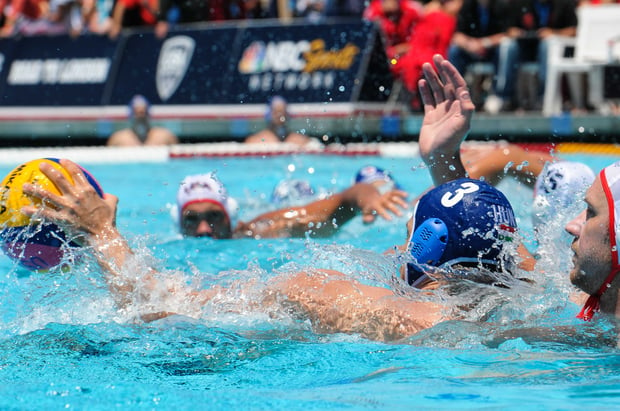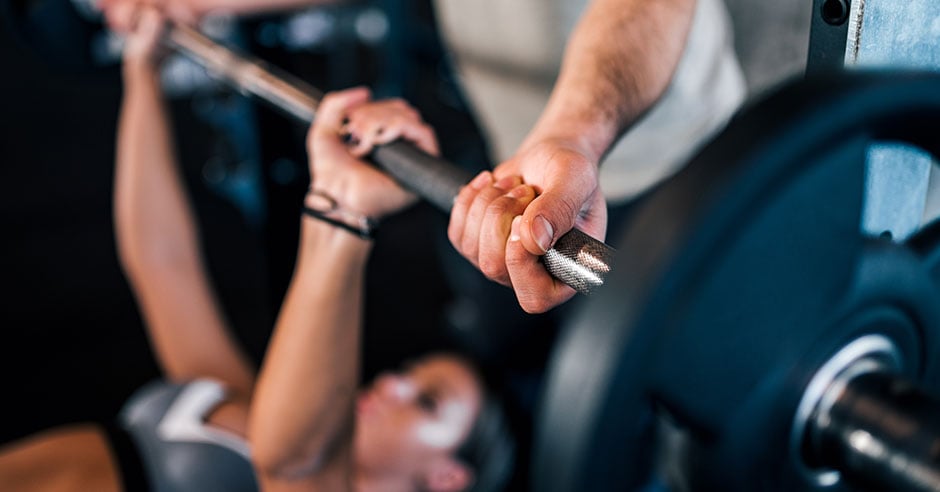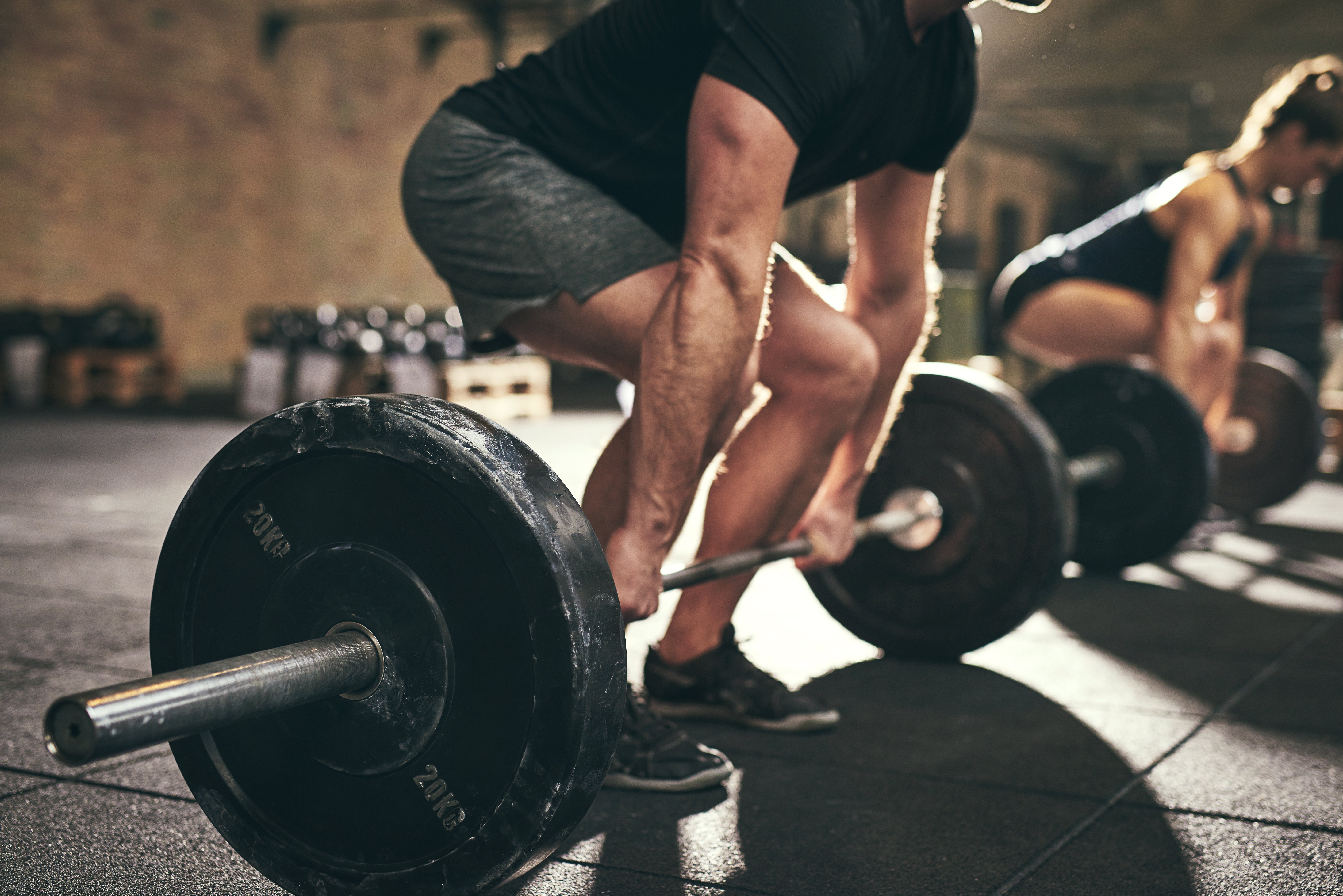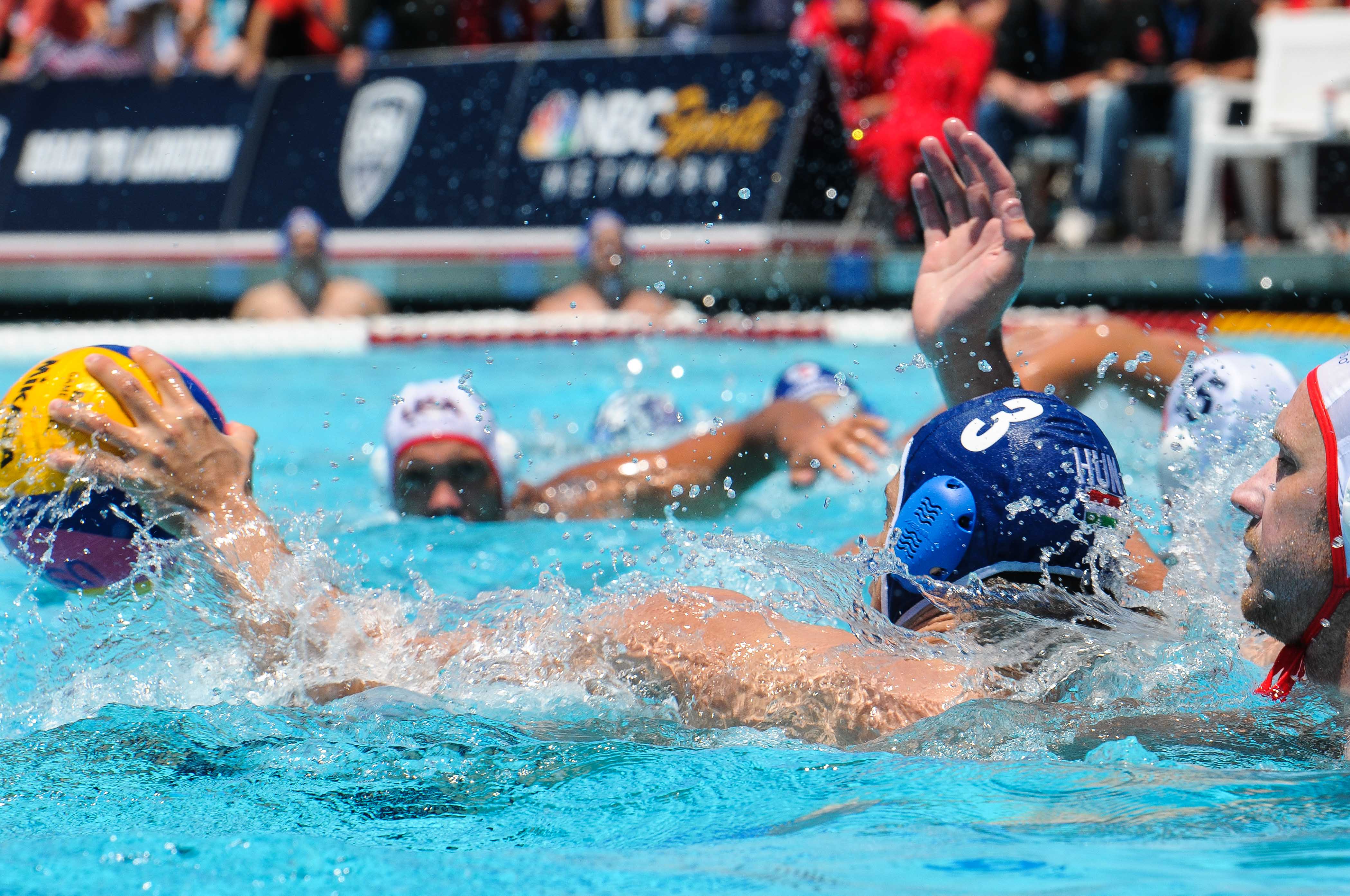5 Dryland Exercises to Increase Your Water Polo Transition Speed
 Quickly transitioning from offense to defense or vice-versa can be the difference for water polo teams and having a successful season. From developing a powerful shot to improving goalie skills, a water polo-specific dryland training program can significantly improve performance in the pool. Below is a list of five water polo-specific dryland exercises that are designed to work on transitional speed.
Quickly transitioning from offense to defense or vice-versa can be the difference for water polo teams and having a successful season. From developing a powerful shot to improving goalie skills, a water polo-specific dryland training program can significantly improve performance in the pool. Below is a list of five water polo-specific dryland exercises that are designed to work on transitional speed.
Lying Thoracic Mobility - Dowel
Level: All
Equipment: Wooden dowel, PVC pipe or rolled-up towel
Movement: Lie face down on the ground. Pick up the wooden dowel, PVC pipe, or towel and keep neck relaxed. With knuckles facing up and arms at full extension, raise arms as far off the ground as possible. Pause. Return slowly to the start position. Repeat for prescribed reps.
Bridge Tip: Keep a slight bend in the elbow throughout the movement and keep the forehead and feet in contact with the ground throughout the movement. This exercise stretches shoulders so athletes can get the most reach out the first few strokes.
Band Bent-Over Neck Pull
Level: All
Equipment: Resistance Band
Movement: Start standing facing the band with a handle in each hand. Hinge at the hips, keeping the back flat and a slight bend in the knees. For the starting position extend arms out in front creating a little tension in the bands. Pull the bands and elbows back toward the rib cage. Pause. Extend arms slowly to return to the start position. Pause. Repeat for the prescribed number of reps keeping the back flat throughout.
Bridge Tip: Focus on depressing shoulder blades (pulling them down) to keep arms stable overhead and move arms slowly, resisting the tension in the bands. This exercise will boost pull for each stroke, increasing acceleration down the pool in transition.
1-Arm MB Pushup
Level: Intermediate to Advanced
Equipment: Medball
Movement: Start kneeling with one hand on the medball (MB) and the other hand on the ground in line with the shoulder. Press up off the knees into a pushup position. Perform a pushup working on stabilizing the MB from moving around. Perform the prescribed reps on this side before moving the MB to the other hand.
Bridge Tip: For all athletes – if they are unable to perform these pushups in a regular pushup position, then use knees. This single-arm exercise balances out arm and chest muscles, making sure to get the most power with every stroke.
Lateral Squat
Level: All
Equipment: None
Movement: Start standing with feet double the width of a regular squat stance and rotated out slightly. Keep the chest up and squat down to the right. Keep the left leg straight while squating to the right. Press up from the right leg to the start position. Perform the same movement, this time to the left. Repeat for the prescribed number of reps, alternating each side.
Bridge Tip: Work on range of motion, but keep the chest up throughout the squat each side and avoid hinging at the hip to achieve range of motion. This exercise increases stability by focusing on balance and coordination.
Side V-Ups
Level: Intermediate to Advanced
Equipment: None
Movement: Start lying on the right side, right arm on the ground at 90 degrees to support bodyweight, and left hand behind the left ear. Keep legs straight and feet on top of each other, hinge at the hip raising legs off the ground, taking the left elbow toward the left knee. Control legs back toward to the ground. Without letting feet touch the ground perform another rep. Repeat for prescribed reps on the right side, then switch to the left side.
Bridge Tip – Keep legs straight throughout the movement. If athletes are unable to, hamstring flexibility could be affecting their range of motion and ability to perform this exercise. This challenging exercise builds core strength to allow for quick turns and stability as players change directions.
Recap
Implementing these five exercises in a dryland program will significantly improve a player's transition speed during the game. Check out this article to learn more about building a dominant water polo dryland program.
About the Author

At Bridge, we are all athletes and coaches first. As athletes, our team has experienced everything from riding the pine on JV, to winning NCAA championships, to competing in the Olympic Games. As coaches, we have helped countless athletes reach their full potential, winning everything from age group section championships to Olympic Gold Medals.
Related Posts

The Best Bench Press Variation You’re...
This post is part of our Coaches Corner series with Taylor Rimmer. Taylor is NSCA-CPT, StrongFirst...

Does Powerlifting Harm Heart Health?
A recent study has discovered that a 12-week supervised strength training program (SSTP) may result...
-1.png)
Barefoot Running: Is It For You? |...
Run Free: Consider Less Cushion
Updated October 2020:
With more athletes looking for ways to...


